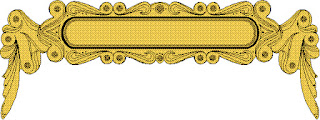How to Compare Your Mojo
Comparisons and Mojo
Activities (Ordered by subjectivity, least to most)
- Putting the shot
- High Jumping
- Long jumping
- Running 100 meters
- Downhill skiing
- Soccer
- Water Polo
- Running for President
- Gymnastics
- Freestyle skiing
- Leading a company (CEO)
- Making #1 million
- Giving a sermon
- Writing a novel
- Acting in a leading role
Once you have selected an activity, you have to consider what type of comparison to do.
- Someone who is better, maybe the best. I'll call him Ace.
- Someone who is similar in ability. I'll call him Jack.
- Someone who is lower in ability or achievement. I'll call him Deuce.
- Yourself at an earlier time.
What results are possible?
- You have exceeded the comparison
- You have equaled the comparison
- You are below the comparison
Whatever the results, you can have a positive or a negative reaction.
But which is most likely? If your comparison is to Ace or Jack, what if you don't exceed them? Could you have done more? If you don't exceed them, you will have learned nothing about your work. If you exceed them, great! But what have you learned? You are likely to be happy, but some doubt will remain. If your comparison is to Deuce, what if you don't
exceed them? Bummer. Doubt. Your work has been fruitless. If you exceed them, there still could be doubt! If your comparison is to yourself at an earlier time and you improve, you will be happy. If you do not improve, you will be likely to know the reason and work harder to improve. Consequently, my advice is to compare yourself to yourself at an earlier time, not to anyone else.
As an example, I will be picking 1. Putting the shot. I picked #1, because the degree of objectivity is pretty high, even if it isn't perfect (arguments over who used PEDs, what is a
violation of the circle, are the measurements fair, etc do occur even in
this activity.)
Let's say that last year, you putt the shot 45 feet in a sanctioned meet. How can this be compared to standards, to others, or to yourself at an earlier time? If your best distance this year is, say, 50 feet, comparisons to Jack and Deuce will not help you. Comparison to Ace might tell you a little, but not as much as comparison to yourself at an earlier time. Comparison to yourself can show you how your training worked, how fast you are going, and in what direction. Let's say you stayed about the same, 45 feet. You learn very little by comparing yourself to others. If you compared to yourself at an earlier time, at least you can see that your training, coaching, or approach to competitions did not improve your performance. You can take stock and make the necessary changes. Let's say you declined to 40 feet. By comparing yourself to yourself at an earlier time, you will learn everything that you could have learned from comparing yourself to others. If you have looked at your own training, coaching, and approach, you have a basis for deciding what to do to improve that you wouldn't necessarily get by comparing yourself to Ace, Jack or Deuce. This is how you make progress and get more mojo.






Comments
Post a Comment